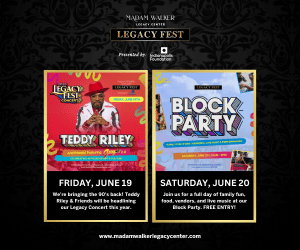“How dare they.”
That’s the phrase that kept running through my mind as I sat alone in a Las Vegas movie theater last weekend. I was there on business and I was so eager to see Lee Daniels’ “The Butler,” that I carved out some time to catch a matinee between meetings.
As I sat in the theater even before the actual movie started, I kept asking myself, “How dare they.”
I was referring to the countless Black men and women who 150 years after slavery demean one another. I was thinking about the Black people who 48 years after the civil rights movement’s push to get the Voting Rights Act passed continue to refuse to vote in local or even federal elections. And I was also thinking of the slothful men and women who are more fixated with partying and hanging with friends, than being responsible parents to their children.
How….dare…they.
As I prepared to see the highly-anticipated movie starring two of my favorite people: Oprah Winfrey and Forrest Whitaker, I had to contain my excitement long enough to get through the trailers. Little did I know at the time that some of the trailers would have just as much of a monumental effect on me as the actual movie. Trailers promoting upcoming movies such as “Mandela” and “12 Years a Slave” that showed the strife of Blacks not only in America, but throughout the world. These trailers were harsh reminders of our history as a people which showed Blacks in inferior positions with the government determining what rights they should have. It was while watching those two-minute clips that I thought to myself, “how dare Blacks act the way many of us do considering where we’ve come from and the sacrifices those before us made.”
How dare we “affectionately” call one another “nigga” as if it’s some sort of term of endearment when such a word was derived from hatred. How dare we disregard one another with the violence, verbal taunts and disrespectful behavior when for generations, our people had to endure the same treatment from other races. How dare we forget the challenges that our people made so that we would have better opportunities and brighter days – even if they would never live to see such realities. How dare we.
By the time the movie had begun, I was already moved to tears. As I sat in the dark theater I said to myself, “more of us need to see movies like these.” We need to constantly be reminded of where we as a people have been so that we can know where we’re going and have a better appreciation for it once we get there.
Sadly, however, is the perspective many of us have of those types of movies. Even Blacks who have seen such movies and are familiar with the challenges our race has had to endure for generations, they view it from a different lens. They are more reactive than reflective by focusing on the maltreatment whites exhibited toward us. I tend to think a bit deeper (I don’t ignore the role of white people in our history; I just don’t focus solely on that). Instead I focus on my ancestors who lived during those tough times. There isn’t a word or phrase that can adequately describe the level of faith, determination and strength it took for them to endure such adverse treatment, yet they did. They persevered and they did so without killing each other, disrespecting their own, or turning their backs on family. Those people were quiet heroes who made tremendous sacrifices.
I often write about the importance of Blacks striving to be better – the significance of us working hard, getting a quality education and being responsible parents and community members. Those aren’t just arbitrary thoughts that make their way in the paper by happenstance. They are intended to be a call to action so that more of us get our acts together. If my words can’t do it, hopefully movies that paint vivid pictures of our history will suffice.
There is an old gospel song by James Cleveland that in part says “I’ve come too far from where I started from. Nobody told me the road would be easy. I don’t believe he brought me this far, to leave me.”
There is truth, power and healing in that song. It’s probably one of the main things that helped our ancestors endure the humiliation and strife of their day. If I were a song writer and had to devise a tone to surmise my thoughts of our people of yesterday and today, it would be a variation of Cleveland’s hit and would probably go something like this:
“We’ve come so far from where we started from. Nobody told them, their road would be easy, but they traveled that road to please me. I don’t believe they endured so much for me to lose touch.”
It’s certainly not as well written and catchy as James Cleveland’s song, but you get the point.
You can email comments to Shannon Williams at shannonw@indyrecorder.com.







